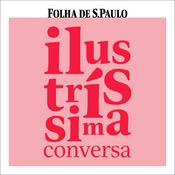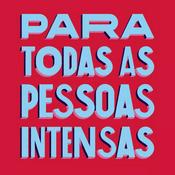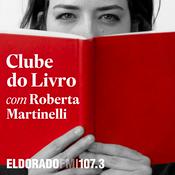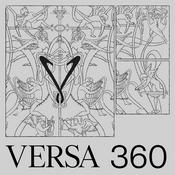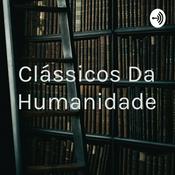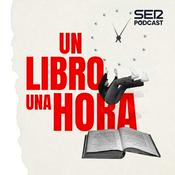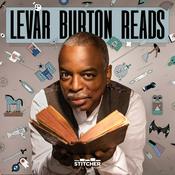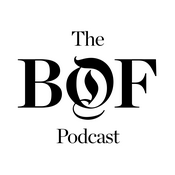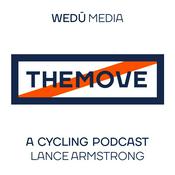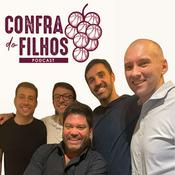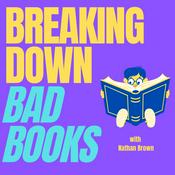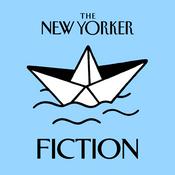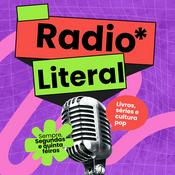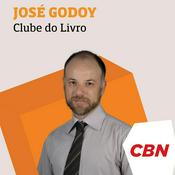816 episódios
Andrew Billing, "Animal Rhetoric and Natural Science in Eighteenth-century Liberal Political Writing" (Routledge, 2023)
04/2/2026 | 56minAnimal Rhetoric and Natural Science in Eighteenth-century Liberal Political Writing: Political Zoologies of the French Enlightenment (Routledge, 2024) shows how our tendency to read French Enlightenment political writing from a narrow disciplinary perspective has obscured the hybrid character of political philosophy, rhetoric, and natural science in the period. As Michèle Duchet and others have shown, French Enlightenment thinkers developed a philosophical anthropology to support new political norms and models. This book explores how five important eighteenth-century French political authors—Rousseau, Diderot, La Mettrie, Quesnay, and Rétif de La Bretonne—also constructed a "political zoology" in their philosophical and literary writings informed by animal references drawn from Enlightenment natural history, science, and physiology. Drawing on theoretical work by Derrida, Latour, de Fontenay, and others, it shows how these five authors signed on to the old rhetorical tradition of animal comparisons in political philosophy, which they renewed via the findings and speculations of contemporary science. Engaging with recent scholarship on Enlightenment political thought, it also explores the links between their political zoologies and their family resemblance as "liberal" political thinkers.
Learn more about your ad choices. Visit megaphone.fm/adchoices- Friction, the force that resists motion, is synonymous with difficulty and complication. If you’ve ever replaced tires worn smooth by the road or reached for a can of WD-40 to fix a creaking door hinge, then you know the headache this force can cause.
In Friction: a Biography (Harvard UP, 2026), Dr. Jennifer Vail reveals beneath the difficulty and complication a force as enigmatic and intriguing as it is central to the human story. She traces how, from the moment we first harnessed the power of fire to the Industrial Revolution and beyond, the quest to manipulate friction has driven innovation, culture, and even our own evolution. Today, as scientists study friction in the most unexpected of places, they’re learning why some viruses lie dormant for years while others devastate our cells immediately; where elusive dark matter might be found; and how the climate crisis ought finally be addressed. And yet, for all they’ve learned, scientists still haven’t cracked the greatest mystery of all: how to bridge the distinct laws that govern friction at its largest and smallest scales.
Connecting the discoveries of historical luminaries like Newton, da Vinci, and the Wright brothers to the latest breakthroughs in engineering, Friction is a captivating biography of this unsung hero of the physical world.
This interview was conducted by Dr. Miranda Melcher whose book focuses on post-conflict military integration, understanding treaty negotiation and implementation in civil war contexts, with qualitative analysis of the Angolan and Mozambican civil wars. You can find Miranda’s interviews on New Books with Miranda Melcher, wherever you get your podcasts.
Learn more about your ad choices. Visit megaphone.fm/adchoices Andreas Killen, "Nervous Systems: Brain Science in the Early Cold War" (Harper, 2023)
01/2/2026 | 53minIn this eye-opening chronicle of scientific research on the brain in the early Cold War era, the acclaimed historian Andreas Killen traces the complex circumstances surrounding the genesis of our present-day fascination with this organ.
The 1950s were a transformative, even revolutionary decade in the history of brain science. Using new techniques for probing brain activity and function, researchers in neurosurgery, psychiatry, and psychology achieved dramatic breakthroughs in the treatment of illnesses like epilepsy and schizophrenia, as well as the understanding of such faculties as memory and perception. Memory was the site of particularly startling discoveries. As one researcher wrote to another in the middle of that decade, “Memory was the sleeping beauty of the brain—and now she is awake.” Collectively, these advances prefigured the emergence of the field of neuroscience at the end of the twentieth century.
But the 1950s also marked the beginning of the Cold War and a period of transformative social change across Western society. These developments resulted in unease and paranoia. Mysterious new afflictions—none more mystifying than “brainwashing”—also appeared at this time. Faced with the discovery that, as one leading psychiatrist put it, “the human personality is not as stable as we often assume,” many researchers in the sciences of brain and behavior joined the effort to understand these conditions. They devised ingenious and sometimes transgressive experimental methods for studying and proposing countermeasures to the problem of Communist mind control. Some of these procedures took on a strange life of their own, escaping the confines of the research lab to become part of 1960s counterculture. Much later, in the early 2000s, they resurfaced in the War on Terror.
These stories, often told separately, are brought together by the historian Andreas Killen in this chronicle of the brain’s mid-twentieth-century emergence as both a new research frontier and an organ whose integrity and capacities—especially that of memory—were imagined as uniquely imperiled in the 1950s. Nervous Systems: Brain Science in the Early Cold War (Harper, 2023) explores the anxious context in which the mid-century sciences of the brain took shape and reveals the deeply ambivalent history that lies behind our contemporary understanding of this organ.
Paul Lerner is Professor of History at the University of Southern California where he directs the Max Kade Institute for Austrian-German-Swiss Studies. He can be reached at [email protected] and @PFLerner.
Learn more about your ad choices. Visit megaphone.fm/adchoices- Today I talked to John L. Rudolph about his book Why We Teach Science (and Why We Should) (Oxford UP, 2023).
Few people question the importance of science education in American schooling. The public readily accepts that it is the key to economic growth through innovation, develops the ability to reason more effectively, and enables us to solve the everyday problems we encounter through knowing how the world works. Good science teaching results in all these benefits and more -- or so we think. But what if all this is simply wrong? What if the benefits we assume science education produces turn out to be an illusion, nothing more than wishful thinking?
John L. Rudolph is Vilas Distinguished Achievement professor in the Department of Curriculum and Instruction at the University of Wisconsin-Madison. He has affiliate appointments in the Department of Educational Policy Studies and the Robert and Jean Holtz Center for Science and Technology Studies and is the past editor-in-chief of the Wiley & Sons journal Science Education. Prior to his faculty appointment, he taught physics, chemistry, and biology in middle schools and high schools across Wisconsin.
Morteza Hajizadeh is a Ph.D. graduate in English from the University of Auckland in New Zealand. His research interests are Cultural Studies; Critical Theory; Environmental History; Medieval (Intellectual) History; Gothic Studies; 18th and 19th Century British Literature. YouTube channel.
Learn more about your ad choices. Visit megaphone.fm/adchoices Emily Mendenhall, "Invisible Illness: A History, from Hysteria to Long COVID" (U California Press, 2026)
24/1/2026 | 38minInspired by her work with long COVID patients, in Invisible Illness: A History, from Hysteria to Long COVID (U California Press, 2026) medical anthropologist Dr. Emily Mendenhall traces the story of complex chronic conditions to show why both research and practice fail so many. Mendenhall points out disconnects between the reality of chronic disease—which typically involves multiple intersecting problems resulting in unique, individualized illness—and the assumptions of medical providers, who behave as though chronic diseases have uniform effects for everyone. And while invisible illnesses have historically been associated with white middle-class women, being believed that you are sick is even more difficult for patients whose social identities and lived experiences may not align with dominant medical thought. Weaving together cultural history with intimate interviews, Invisible Illness upholds the experiences of those living with complex illness to expose the failures of the American healthcare system—and how we can do better.
This interview was conducted by Dr. Miranda Melcher whose book focuses on post-conflict military integration, understanding treaty negotiation and implementation in civil war contexts, with qualitative analysis of the Angolan and Mozambican civil wars. You can find Miranda’s interviews on New Books with Miranda Melcher, wherever you get your podcasts.
Learn more about your ad choices. Visit megaphone.fm/adchoices
Mais podcasts de Arte
Podcasts em tendência em Arte
Sobre New Books in the History of Science
This podcast is a channel on the New Books Network. The New Books Network is an academic audio library dedicated to public education. In each episode you will hear scholars discuss their recently published research with another expert in their field.
Discover our 150+ channels and browse our 28,000+ episodes on our website: newbooksnetwork.com
Subscribe to our free weekly Substack newsletter to get informative, engaging content straight to your inbox: https://newbooksnetwork.substack.com/
Follow us on Instagram and Bluesky to learn about more our latest interviews: @newbooksnetwork
Site de podcastOuça New Books in the History of Science, Fashion Neurosis with Bella Freud e muitos outros podcasts de todo o mundo com o aplicativo o radio.net
Obtenha o aplicativo gratuito radio.net
- Guardar rádios e podcasts favoritos
- Transmissão via Wi-Fi ou Bluetooth
- Carplay & Android Audo compatìvel
- E ainda mais funções
Obtenha o aplicativo gratuito radio.net
- Guardar rádios e podcasts favoritos
- Transmissão via Wi-Fi ou Bluetooth
- Carplay & Android Audo compatìvel
- E ainda mais funções

New Books in the History of Science
Leia o código,
baixe o aplicativo,
ouça.
baixe o aplicativo,
ouça.


